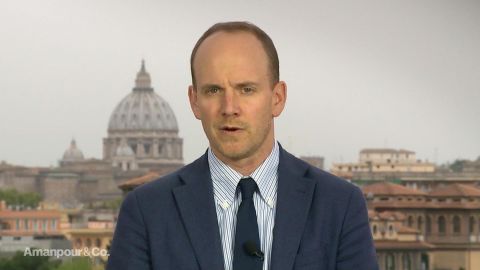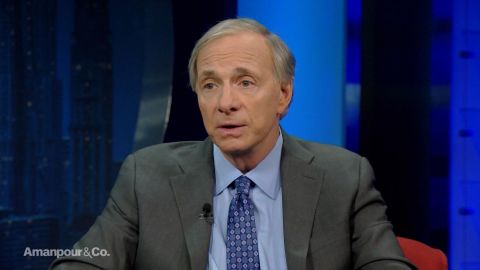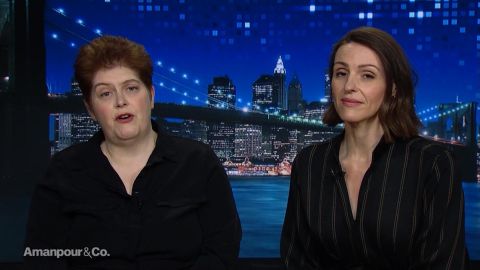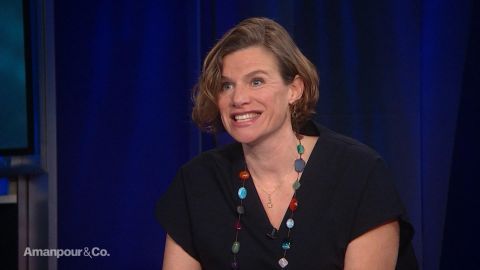Read Transcript EXPAND
MARIANA MAZZUCATO, AUTHOR, “THE VALUE OF EVERYTHING”: Right. So, the real question is, can we identify what’s required to create stuff, you know, new goods and services? So, consider your smartphone or any of your smart products. What actually makes it smart and not stupid was lots of publicly financed technology. So, the internet, GPS, Siri, touch screen display, your smartphone would be nothing without that.
Now, do we actually have a system whereby the profits that are generated from the companies that very smartly through their great sense of design and simplicity like Apple, whether the profits that are generated from what is really a collectively created wealth system, the degree to which those rewards also go back into, say, the social infrastructure, which enabled it.
Or think of medicines. In many countries like in the U.S., the state actually finances lots of the medical research. So, something like 75 percent of really revolutionary kind of blockbuster drugs trace their funding to that kind of research. And in the U.S., they spend over $30 billion a year. That’s what Uncle Sam spends on pharmaceutical innovation. And then the pricing system that’s applied to those medicines doesn’t take, you know, that into account at all.
There’s actually a formula called value-based pricing, the word value is there but it’s misused, it’s misrepresented. So, literally, the pharmaceutical companies can charge whatever they want. The point is that there’s lots of different actors in the system and if we’re only rewarding some of them and not the full system, then actually the capitalist system itself isn’t sustainable.
AMANPOUR: Is it possible to turn that around and how would one do that?
MAZZUCATO: Well, first, we have to redefine what we mean by the market. You began by saying, you know, “We have the market and the state.” But actually, the market itself is an outcome of how public and private and third sector, so civil society organizations, including trade unions, interact.
So, we really have to start asking ourselves, what kind of market outcomes do we want and what does that mean, also, for the kinds of governance structures within the organization. and that would include the state organizations. So, I think we have a crisis of the state today. The state has kind of bought into this idea that at best it can just tinker and kind of fix what economists call market failures, when actually some of the most interesting successes in modern day capitalism were when we had market cocreation, where both public and private and civil society organizations really felt that they were co-creating a new space.
AMANPOUR: So, like what recently?
MAZZUCATO: Well, the digital revolution would not have happened if the state was just thinking of a taxation, some sort of indirect tax incentive.
AMANPOUR: And all we think of, though, is the Silicon Valley geniuses. We think that it all came from there.
MAZZUCATO: Absolutely. But, you know, just think of the big discussion today around the green economy. We really should learn — if we want a green revolution, we should learn what happened in the digital revolution, the state led and the private sector followed. But also, there was really interesting contracts in place. So, I don’t know if you’ve ever heard of Bell Labs, it was a really innovative R&D laboratory, research and development laboratory, inside AT&T. That happened because the state forced AT&T to reinvest its profits in order to maintain its monopoly status.
About This Episode EXPAND
Christiane Amanpour speaks with Mariana Mazzucato about the Green New Deal; Sally Wainwright & Suranne Jones about “Gentleman Jack;” and John Oschendorf about the key to repairing Notre Dame. Walter Isaacson speaks with Ray Dalio, who manages the world’s most successful hedge fund, about the widening wealth gap.
LEARN MORE



